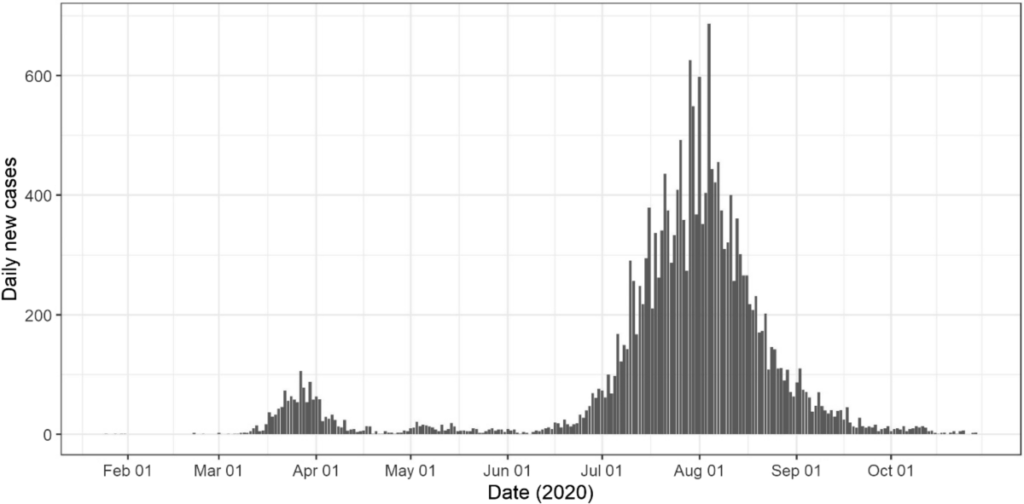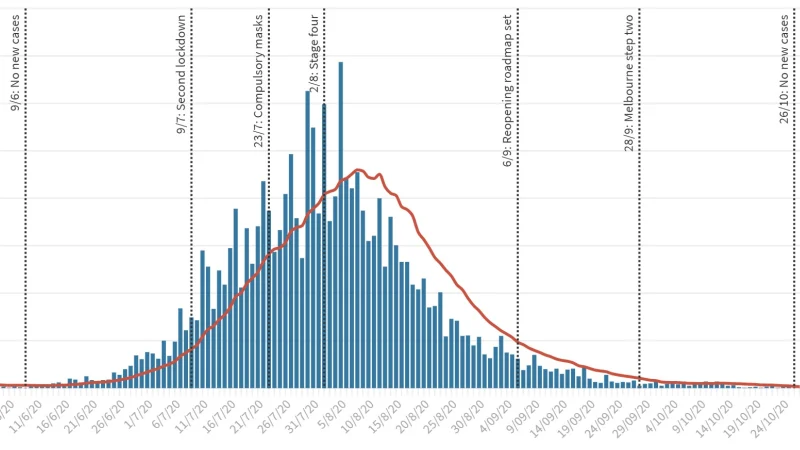In the last few years, the world has changed in big ways because of a virus called COVID-19. Even today, many people still want to know what’s happening with COVID, especially in places like Victoria. If you’re searching for clear answers about COVID cases in Victoria, you’re not alone. This article will help you understand what’s going on, why numbers go up and down, what you should do, and how to stay safe.
What Are COVID Cases in Victoria Right Now?
Right now, COVID cases in Victoria are still being tracked by health officials, though not as closely as during the peak of the pandemic. That’s because the way we track COVID has changed. Instead of daily updates, health departments might give weekly or monthly summaries. The numbers can still show trends—whether cases are rising, falling, or staying about the same.
Even though case numbers aren’t reported every day like they used to be, people still test positive. Many new cases come from at-home tests, and not all of those are reported to officials. That means the actual number of COVID cases in Victoria could be higher than what’s on record.
You can check your local health department’s website or the CDC’s latest updates to see trends. In general, cases tend to rise in colder months like winter and fall, when people gather indoors more often. It’s also common to see upticks after holidays or big public events.
Why Do COVID Cases Go Up and Down?
You may wonder: why do the numbers go up sometimes and down at other times? Well, there are many reasons behind this. One major reason is human behavior. When people go out more, attend big events, or stop wearing masks, the virus spreads more easily. That’s why you’ll often see more cases after holidays like Thanksgiving or Christmas.
Another factor is new COVID variants. Every now and then, the virus changes a little, and some new versions spread more easily. These are called variants, and some are more contagious than others. You’ve probably heard of names like Delta, Omicron, or more recently, newer sub-variants like XBB or BA.2.86.
Weather also plays a role. In colder months, people stay indoors, and that makes it easier for the virus to spread. When it’s warmer, people gather outside, where the virus has a harder time jumping from person to person.
Vaccination levels also matter. When more people are vaccinated or boosted, there’s less chance for the virus to spread. But if people skip their booster shots, immunity can wear off over time, and the risk goes up again.
What Should You Do If COVID Cases Go Up?
If you hear that COVID cases in Victoria are going up, don’t panic—but don’t ignore it either. There are still smart things you can do to protect yourself and your family. First, stay informed. Watch for updates from your local health department or trustworthy sources like the CDC or WHO.

Make sure you’re up to date on your COVID vaccines and boosters. These shots can help keep you from getting very sick even if you do catch the virus. You can also think about changing a few everyday habits. That doesn’t mean locking yourself indoors, but small changes—like avoiding crowded indoor places—can make a big difference.
And yes, masks can still help, especially in places where COVID is spreading more. Read on for more details.
Should You Still Wear a Mask?
Yes, in some cases. If COVID cases in Victoria are rising, wearing a mask in public spaces—especially indoors—can help protect you and the people around you. Masks are especially helpful in hospitals, buses, airports, or busy stores. You don’t have to wear one all the time, but keeping a mask handy is a good idea during high transmission times.
Can You Still Get COVID If You’re Vaccinated?
Yes, you can still get COVID even if you’ve had the vaccine. But here’s the good news: being vaccinated usually means you’ll have milder symptoms, and you’re less likely to end up in the hospital. The vaccine doesn’t make you bulletproof, but it does give your body a big head start in fighting off the virus. Boosters also help keep your protection strong, especially against newer variants.
What If Someone in Your Family Gets COVID?
If someone in your home tests positive for COVID, the best thing to do is create a little space. Try to keep them in one room, use a separate bathroom if possible, and make sure everyone else wears a mask around them. Wash hands often and clean surfaces. The sick person should rest, drink fluids, and monitor symptoms. If symptoms get worse—like trouble breathing—call a doctor right away.
How Many COVID Cases Are There in Victoria Today?
It’s a little tricky to say the exact number of COVID cases in Victoria today because many people use at-home tests and don’t report the results. Plus, the government now tracks COVID differently than in the early days. However, local health authorities still collect data from hospitals, clinics, and some testing sites. You can visit the CDC’s COVID Tracker or your county health department’s site to see the most recent numbers.
Keep in mind, numbers might not show the full picture—but they still help tell whether cases are trending up or down. It’s always a good idea to stay alert when cases are rising and take a few extra precautions.
Symptoms of COVID: What Should You Look Out For?
COVID symptoms can feel like a cold, the flu, or even allergies. That’s why it can be tricky to know what you’re dealing with. The most common symptoms include:
- Fever or chills
- Cough
- Shortness of breath or trouble breathing
- Fatigue
- Body aches
- Loss of taste or smell
- Headache
- Sore throat
- Congestion or runny nose
- Nausea or diarrhea
Some people only get a few of these symptoms. Others might feel really sick. And some don’t feel sick at all but can still spread the virus. If you think you might have COVID, it’s smart to take a test and stay home until you know for sure.
How Do People Test for COVID in Victoria?
There are a few different ways people get tested for COVID in Victoria. You can use an at-home rapid test, go to a pharmacy, visit a doctor’s office, or use a public testing site. At-home tests are fast and easy, and many are available at local stores or online. Some are even free from the government.

If you want more accurate results, a PCR test is a good choice. It’s done at clinics or testing centers and takes a little longer to get the results—but it’s more reliable.
Where Can You Get a Test in Victoria?
You can find COVID tests at many places, including:
- Local pharmacies like CVS, Walgreens, and Rite Aid
- Community health centers
- Some schools and workplaces
- Drive-thru testing sites (check online for availability)
- Through your doctor
You can also check online resources like COVID.gov or your county health website to see where tests are available near you.
How Long Does It Take to Get Results?
For rapid at-home tests, you can usually get results in about 15–30 minutes. If you get a PCR test from a clinic, it might take 1 to 3 days to get the results, depending on how busy the lab is. During times of high COVID cases, it could take a bit longer.
What Happens If You Test Positive for COVID?
If your test is positive, stay calm and stay home. You should isolate yourself from others for at least five days. Wear a mask if you need to be around others, and keep an eye on your symptoms. You can return to normal activities when you feel better and haven’t had a fever for at least 24 hours without medicine. Some people still test positive after a week, but they may not be contagious anymore. Talk to your doctor if you’re not sure.
Can Kids Get COVID in Victoria?
Yes, kids can get COVID too. Most children have mild symptoms, but some can feel pretty sick or even have long-lasting symptoms. That’s why it’s important to protect kids with vaccines if they’re eligible. Schools in Victoria usually follow health guidelines to keep students safe, especially during outbreaks. Make sure your child stays home if they’re feeling sick, and talk to a pediatrician if you have any concerns.
The Bottom Line
COVID cases in Victoria are still happening, even if we don’t hear about them as much anymore. The virus hasn’t gone away, but we’ve learned how to live with it. By staying informed, getting vaccinated, and making smart choices, we can keep ourselves and our families safe. Whether you’re young or old, staying alert when COVID cases rise helps protect your community. Keep your mask nearby, wash your hands often, and stay home if you’re sick. It’s the small things that make a big difference.
Remember, COVID may still be around, but we are smarter, stronger, and better prepared than ever before.

